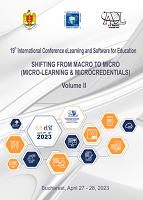PROPOSED MINIMUM PRACTICES FOR DISTANCE EDUCATION
PROPOSED MINIMUM PRACTICES FOR DISTANCE EDUCATION
Author(s): Vid Honfi, Zsolt Illési, Pál BárkányiSubject(s): Education, School education, Health and medicine and law, Sociology of Education, Distance learning / e-learning, Pedagogy
Published by: Carol I National Defence University Publishing House
Keywords: COVID; security incidents; learning environment at home; cybersecurity; data security;
Summary/Abstract: The coronavirus epidemic quickly forced educators to use those digital solutions which have been with us for a long time. Distant education has spread exponentially in almost days. Still, neither the educational institutes nor the students were prepared for such a tremendous and rapid change. The main question of information security considerations is the level of information security of confidential, sensitive data during work in an educational environment. It can be maintained if the students study from home instead of the educational environment. The security of the overall educational system is crucially determined by the IT infrastructure used and how it is used. The main elements of this are: The endpoint workstation of the students learning online from home (notebook, tablet, and any associated peripherals); Home internet service and its settings; The central (server-side) device or application to which connects online; Internet connection and communication and its tools. This paper reviews the critical issues of securing the learning environment during distance learning. According to our survey, the key risks and vulnerabilities educational institutions should pay special attention to during the distance learning when the students work from home are logical attacks, third-party incidents, IT expertise and skills.
Journal: Conference proceedings of »eLearning and Software for Education« (eLSE)
- Issue Year: 19/2023
- Issue No: 02
- Page Range: 243-253
- Page Count: 11
- Language: English

